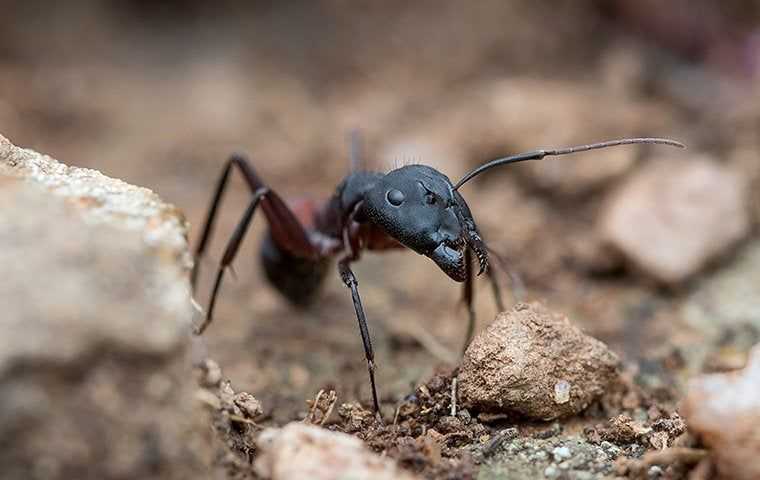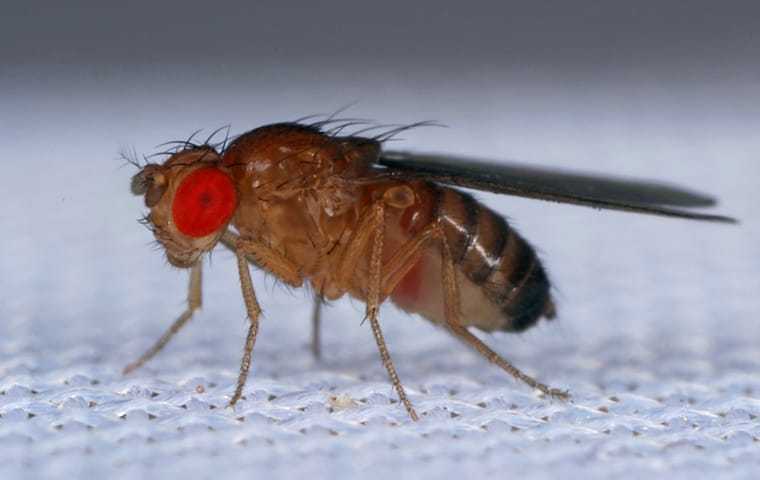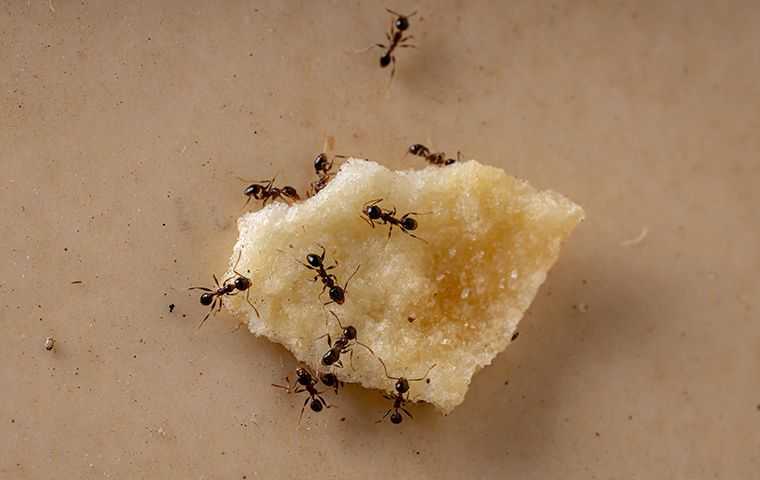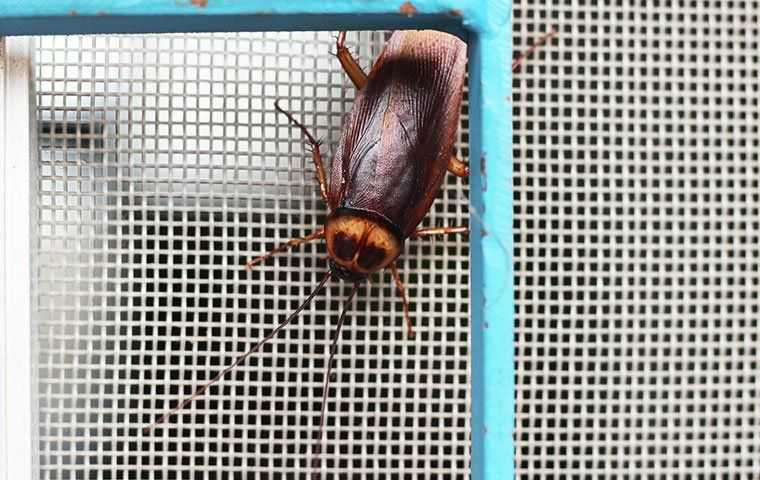When ants become a problem, they can feel like a big problem. These insects can get into your Oahu home by the thousands, which can be overwhelming. If you're currently dealing with an ant infestation, be aware that you can contact us immediately to resolve your issue. Jump to our contact page for Oahu pest control. If you want some idea about dealing with ants on your own, or you'd like to know the benefits of calling a professional, stick with us.
Signs Of An Ant Infestation

If you have ants crawling on your floors, walls, ceilings, and everything else, you don't need a list of warning signs. It is easy to tell that you have an ant infestation. But, not all ants show themselves like this. If you have black carpenter ants in your home, they can hide in voids and structural wood and only come out at night to find food. If you don't realize you have a black carpenter ant infestation, they can damage your home, over time. The following warning signs can help you catch carpenter ants and any other ant pests that have established a nest inside your home.
- Carpenter ants create frass, a mixture of feces, wood shavings, and insect parts. Frass is pushed out of kickout holes and may appear in common areas and other easily inspected areas of your home. However, ants can push frass out into wall voids, which isn't easily detectable.
- When other ant species, besides carpenter ants, create a nest in your home, they bring soil and organic debris in with them. They use this material to make a suitable habitat for nest creation. You may be able to detect soil and other organic debris if you use a flashlight to perform a detailed inspection of the cracks and crevices of your home.
- Carpenter ants damage wood, and you may use this damage to help you detect a problem. Inspect window and door frames, baseboards, rafters, and other structural wood. Inspect the holes with a flashlight to detect ant activity within, if you find holes.
- When ants get into your home, you may find them in your pantry or kitchen cabinets. But you don't have to wait until you have ants in these places. You can inspect the interior and exterior for ant trails. Follow the ant trails to help you determine how the ants are getting in or what source has attracted the ants to your home.
- When an ant nest matures, the nest begins to produce winged ants. These are reproductive ants that create new nests. It is not a good sign to find winged ants inside your home because it is evidence of an interior nest and an infestation that has been in your home for a long time. If you find winged ants outside, it is less of a concern but still concerning.
If you detect an ant problem, what is the next step? Should you handle it yourself or contact a licensed pest management professional? Let's look at both sides of this.
FAQ: What To Expect From Professional Ant Control
You may already know how to get rid of an ant infestation. Ants are common pests. You suck the ants up with a vacuum, wash down the area where you found the ants, remove the food source or unsanitary conditions that brought the ants into your home, and seal the entry points they used. But, of course, not all ant problems are this easy to correct, and if you don't have the skillset, this simple solution may seem impossible. It isn't always easy to locate and seal entry points using expanding foam or silicone caulk.
One of the primary benefits of contacting a professional is getting ant control solutions that work to resolve even the most challenging ant problems. How do professionals get this tough job done? Here are some frequently asked questions about professional ant control.
Is bait the best way to deal with ants?
In many cases, bait is the best way to address an ant infestation. Bait addresses the source of the problem, not the symptom.
What bait should I use to stop ants?
There is no silver bullet. You must select a bait known to be taken by the ant species you're treating. Sugar ants will prefer gel baits. Ants that eat protein will go for granular baits.
What other treatments work to stop ants?
Your professional may take outlet covers off and inject dusts into your wall voids if you have ants inside your walls; apply mound treatments if you're having issues with ants in your yard; or apply a liquid treatment around your home to keep ants from entering.
Does ant pest control permanently stop ants?
Yes. You can permanently stop ants if you get routine treatments throughout the year. Unfortunately, there is no one-time fix that will prevent future infestations.
What does a professional do during a service visit?
Your service should begin with an inspection. Based on the findings, your technician will determine an appropriate treatment plan. Your technician will perform the treatments, monitor ant activity, and evaluate the program's success. Ant control is a scientific process that works every time. When completed, you won't have ants in your home.
If you have a question that wasn't addressed here, or you'd like to request service for your Oahu home, reach out to Pest Tech Hawaii for assistance. We can guide you toward the right solution for your specific ant control problem.
Tips To Prevent Ant Reinfestation
Ant prevention can help prevent future infestations or proactively prevent an infestation if ants haven't already invaded your home. These tips work to counteract ant behavior.
- Address food sources: What do ants eat? Everything! But, a few food sources that commonly attract ants are honeydew, nectar, dead bugs, living bugs, garbage, nuts, and seeds. Alter conditions that provide these food sources for ants. Try preventing aphid problems, dealing with weeds, removing bug habitats, picking up nuts, and moving bird feeders away from your exterior walls.
- Address moisture: Ants are attracted to moist conditions. Repair your gutter system, remove leaf litter, and eliminate unnecessary vegetation in your landscaping. Trim tree canopy in densely shaded areas around your home. Fix plumbing leaks, sprinklers, leaky spigots, and hoses.
- Address habitats: Ants are attracted to organic environments. Move stacked wood, brush piles, stones, and plant clippings away from your exterior.
- Address routes: Ants use branches as pathways to get into homes. Trim tree branches and vegetation away from your exterior.
- Address entry points: Seal gaps around plumbing, wire conduits, and other foundation penetrations. Replace weatherstripping and door sweeps that have gaps. Adjust exterior double doors that have gaps. Use a foundation repair kit to seal cracks in your foundation.
- Manage your garbage: Many ants are attracted to the scent of decaying organic matter. Keep your trash in covered containers and deodorize your containers if they develop an unpleasant odor. While unpleasant to you, that odor will attract ants from a distance.
- Remove anything that is rotting: A dead animal carcass, rotting fruit, food left outside after a cookout, and other decaying organic sources can bring ants in by the truckloads. Sanitation is at the heart of every ant-management plan.
- Keep your home clean: Ants send scouts into your home. If the scouts find food debris, juice spills, grease on the side of your oven, pet food, dirty dishes stacked next to your sink, and other food options, they'll recruit more ants to enter your home. Almost all ant problems begin with an interior attractant.
- Protect your food: Store food inside sealed plastic containers to keep the scent of the food inside the containers and ants on the outside of the containers.
You naturally deter ants and seal them out of your home when you take these steps. In most cases, this is all the ant prevention you need. Unfortunately, it takes work. The good news is that you don't have to do all this work. When you have year-round home pest control for your property, you get layers of protection that work to keep ants out, even if you have conducive conditions in your yard.
Let Pest Tech Hawaii Help With Your Ant Problem
Whether you're currently dealing with an ant infestation or hoping to prevent one, we can help. At Pest Tech Hawaii, we use industry-leading control options to arrest ant infestations and a trusted pest management process to keep ants out. If you've had enough of ants, we get it, ants can be maddening and overwhelming. When you walk into a room and they're everywhere, it can make you want to move out. Well, you don't have to move. Ongoing pest management and treatments around your home stop ants (and a long list of other pests) from getting inside. Reach out to us today to learn more and start living the pest-free life. It's an awesome life.
Client Review

Aaron was our contact and was super good at explaining everything to our family. He was available and responded to calls and text messages through the process. The team was able to get the house fumigated super quick from quote to clearing the house to re-enter in under two weeks. Mahalo to the Pest Tech Hawaii team.
Request An Estimate
Complete the form below to request your estimate.






